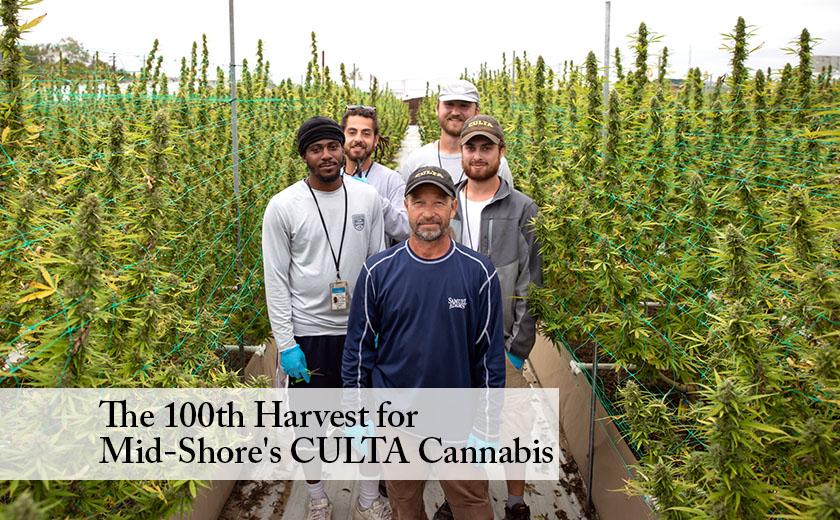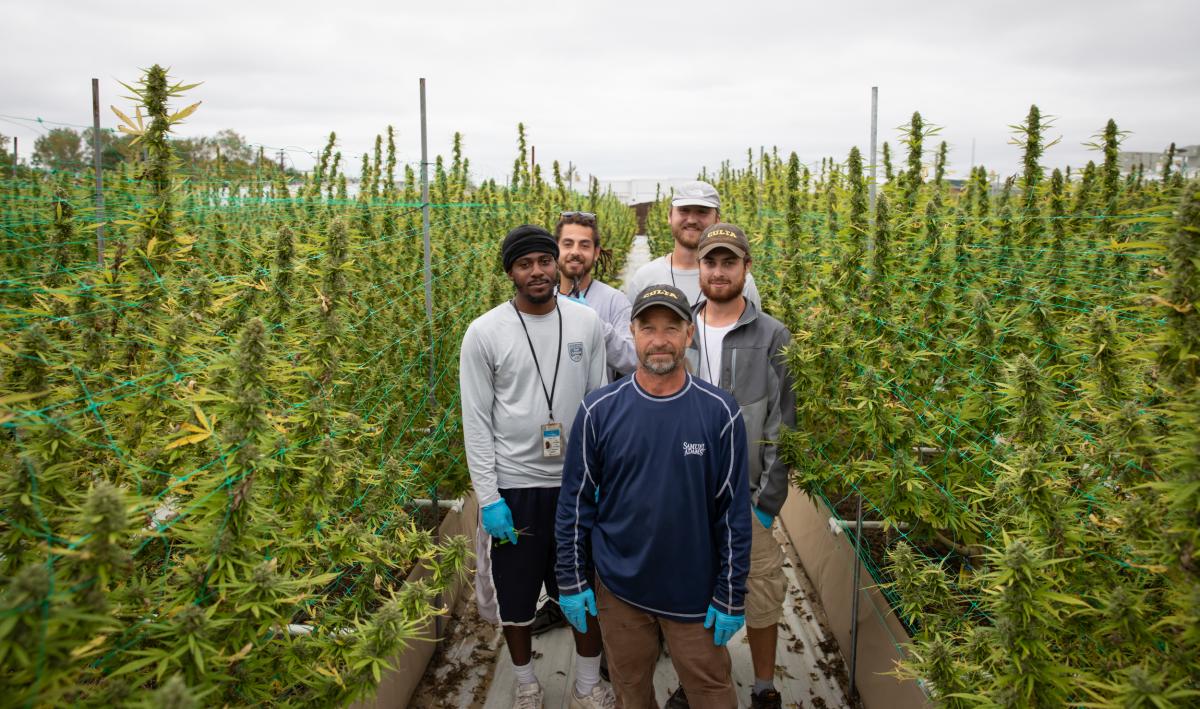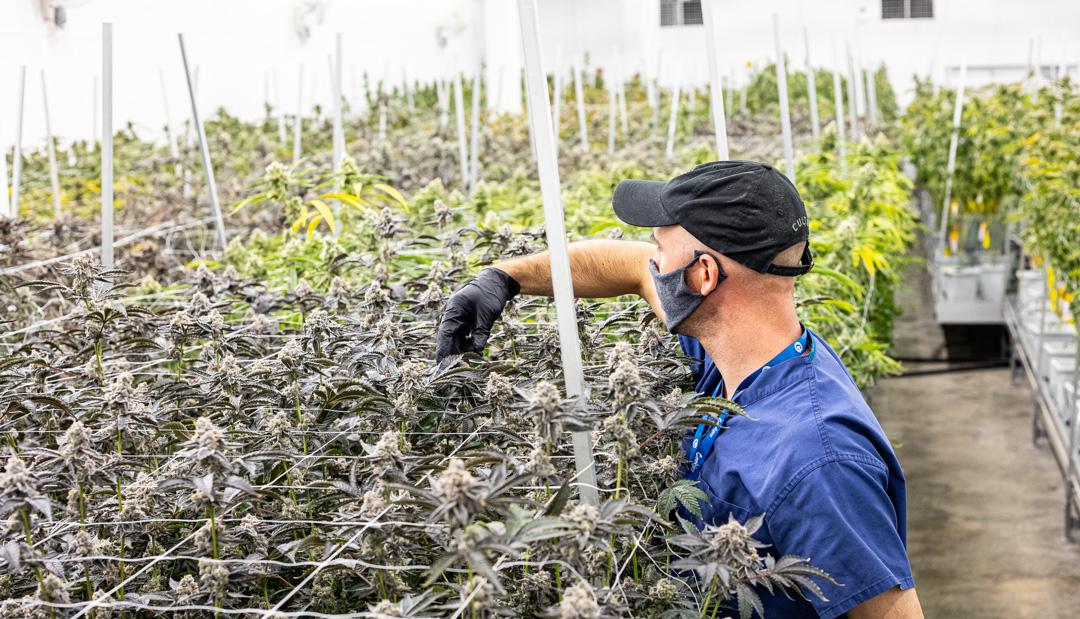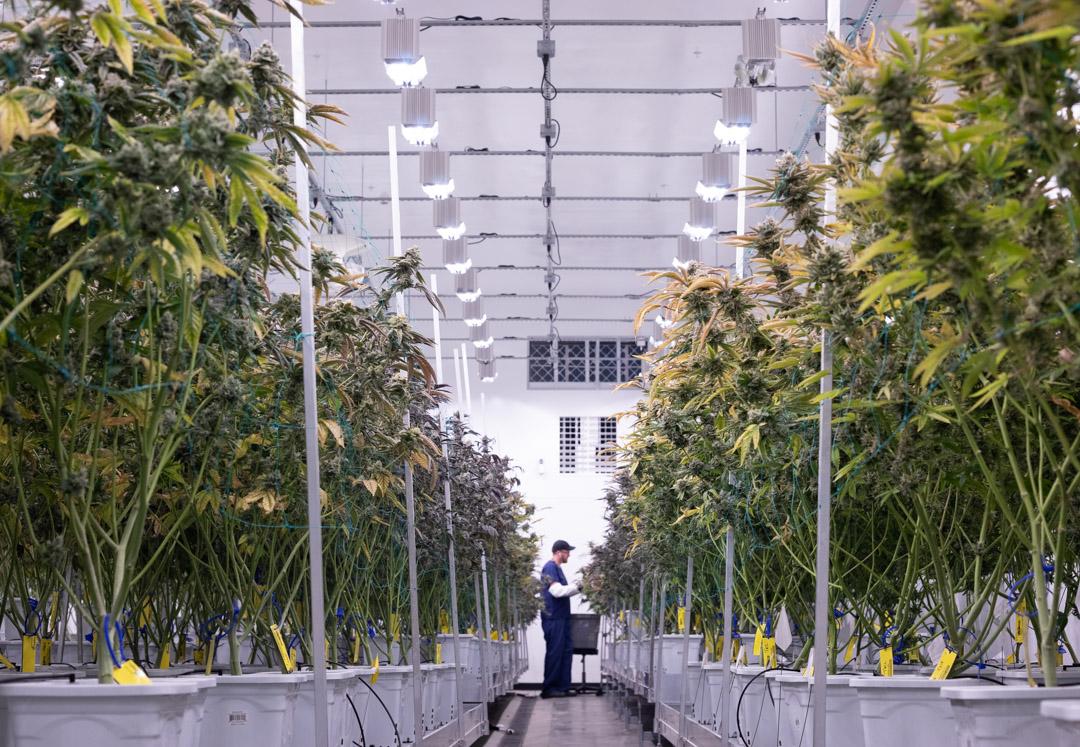Historically, Cambridge had been home to many successful businesses, notably fruit and vegetable canneries, seafood packing houses, and related production facilities. The industries produced economic boom times and plenty of jobs for locals needing work.
Those once bustling businesses have long since drifted away. Yet some vacant factories and warehouses remained, somber signposts of past glory gazed at in the rear view mirror.
But lately, flickers of hope have been resurfacing on the horizon, in the form of good enterprising ideas looking for fixer upper buildings featuring good bones to call home, along with lots in need of love to live again.
One such Cinderella scenario has taken place at 10 Washington Street, in a modern farming complex tucked away behind the Police Department, in what some might consider an ironic twist of fate and others poetic justice.
The property, once home to a glass manufacturing facility, has been transformed into a state of the art, green certified cultivation campus for CULTA, the Maryland-based medical cannabis startup which, since sprouting from the fertile minds of co-founders Mackie Barch and Matt Bickel in 2017, has rapidly matured into a homegrown success story.
Following a continuous upward trajectory, in 2021 CULTA’s business offices moved from Silver Spring to a larger Bethesda facility. The company’s innovative, ever expanding craft product lines are available at the flagship Federal Hill dispensary in Baltimore, as well as others throughout the state.
Jay Bouton, Senior Director of Cultivation, shared that after starting out with an original crew of 10, today about 150 of the company’s 180 employees work at the Cambridge growing facility.
A Colorado transplant, Bouton reflects a number of staffers willing to relocate here from out-of-state due to the quality of jobs available. “The industry in Maryland has matured from a workforce perspective, and more people are finding that it offers great career paths doing something that they have always had a passion for,” he added.
According to the CULTA website, the unconventional urban farm comprises three outdoor acres and 20,000 indoor square feet featuring a heavily automated, multi-stack LED vertical growing system inside a medical grade code building, ensuring the same surgically clean environment as a hospital or medical facility.
On April 17, 2018, the company celebrated its first cannabis harvest of 450 plants, nurtured within the outpost’s initial indoor grow space.
In 2019, CULTA broke new ground, literally and figuratively, becoming not only the East Coast’s first outdoor cannabis cultivator, but the first organically managed farm in the state to earn stringent Green Clean certification, regarded as among the highest international industry standards.
This month another milestone was announced–the 100th harvest, with a bumper crop of 950 cannabis plants, Bouton noted.
“When I first stepped into the facility in 2018, I was immediately impressed by how clean the entire place was. Over the years, as we have expanded, the facility has continued to exceed all expectations and proves that anything is possible with the right team. Retrofitting an existing warehouse has its unique set of challenges, but that is also part of the fun and the challenge to make it work with the canvas you have available,” he mentioned.
“Technology that is available to the cannabis industry is changing rapidly, and you can see that firsthand with our two phases of indoor grow rooms. The lighting, HVAC, and irrigation/fertigation equipment that we installed in 2020 was much improved over the equipment available to us in 2016, when the first purchases were made. LED lighting and multi-tiered grow rooms have been the biggest recent changes to the industry overall,” Bouton noted.
“We joined the Sustainable Cannabis Commission (SCC) in January of 2022, with a focus on becoming carbon neutral in the next 10 years. We have installed only LED lighting in our grow rooms for the past three years, which gives us significant energy savings for every batch harvested. These lights also reduce the amount of heat in the room, which in turn decreases the amount of air conditioning needed, creating more savings. Sustainability will continue to be a primary focus for CULTA for years to come,” he added.
It also appears that the innovative enterprise looks forward to being part of the Cambridge landscape for the foreseeable future, as well.
“We feel that we have been welcomed to Cambridge with open arms and couldn’t have chosen a better town to call home. Since we popped our first seeds in 2017, there have been many improvements and additions to the area, and we look forward to being involved with the future of Cambridge,” Bouton added.
For more information visit https://culta.io/.
Debra Messick is a retired Dorchester County Public Library associate and lifelong freelance writer. A transplanted native Philadelphian, she has enjoyed residing in Cambridge MD since 1995.






Write a Letter to the Editor on this Article
We encourage readers to offer their point of view on this article by submitting the following form. Editing is sometimes necessary and is done at the discretion of the editorial staff.